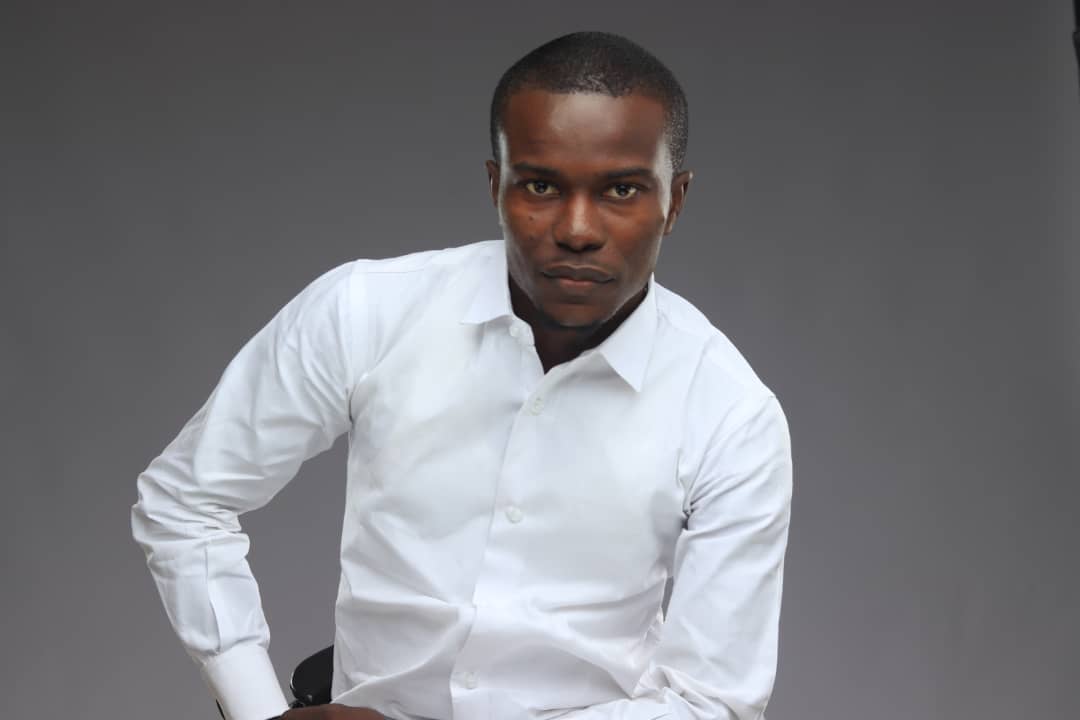Features
Mfonobong Inyang: Steering The Titanic Ship That Is Nigeria

October is that month in the year that carries a lot of weight on a personal note and, obviously, on a national note. I enter the month with a lot of introspection because my mind always runs on diagnostics and consequently developing paradigms, solutions and blueprints that can move the proverbial needle. On the cusp of Independence Day last year, I was just interrogating a biblical text for other purposes, but the more I looked at the story, the man at the Beautiful Gate appeared more and more to me as a metaphor of the dysfunction that Nigeria had become. This year is no exception; the anecdote that underscored the grave situation we find ourselves in as a country is the Titanic movie. I will share selected touchpoints from the movie that parallel our situation.
Titanic
The ill-fated RMS Titanic, a luxurious ocean liner, sank in the early hours of 15 April 1912 on its maiden voyage from Southampton to New York. The director, James Cameron, literally went to great depths to capture the forensics of the actual ship so it could inspire his cinematic portrait of the fascinating vessel. The word, titanic, became so iconic that it is effectively a double entendre used to describe anything or anyone huge. Nigeria is a titanic country; we are supposedly the giant of Africa, and the most populous black country in the world. Just like in the movie, certain figures were overly fascinated by the size of the Titanic that it bordered on conceit, hence the supposition that the ship was unsinkable. Nigeria has a similar narrative; we have enjoyed certain economic, socio-cultural and geo-political perks for so long that hubris has kicked in. As a collective, we have survived events that would sink other countries, but instead of being humble and learning the needed lessons, we doubled down on dysfunction.
Nigeria survived a civil war, and we promised ourselves that reconciliation, rehabilitation and reconstruction would follow, but in reality, we doubled down on marginalisation, bigotry and injustice. We survived military rule and transitioned to a somewhat contorted version of democracy, but the same people who claimed they were the heroes of democracy have done more to destroy it than those who were in khaki. We were so prosperous as a country that a Nigerian leader once said, “Money is not the problem, but how to spend it.”
Instead of creating a sovereign wealth fund to properly steward those resources, today we are one of the most indebted countries in the world. We survived the Ebola Virus largely because of Dr Ameyo Stella Adadevoh, and instead of immortalising her, such sacrifice has been relegated to the footnote of history, but we are naming monuments and handing out national honours every eke market day to political acolytes and integrity-challenged individuals. We survived a pandemic, but instead of revamping our healthcare infrastructure, we reverted to business as usual. There were even allegations of donated funds being embezzled and politicians hoarding indommieenn. We survived a bloody youth protest in October 2020, yet the very thing that fuelled that movement persists–young people being routinely profiled and extorted by law enforcement officials. I could go on, but you get the point.
Politicians & Professionals
Bruce Ismay was the eccentric managing director of White Star Line, the shipping company that owned and operated the RMS Titanic. While having a meal with Captain Edward John Smith, Ismay confronts the Captain about the fact that the last four boilers of the ship were yet to be lit, to which Captain Smith responds, “I don’t see the need; we are making excellent time.” Ismay, not one to give up easily, nudged the Captain some more, “The press knows the size of the Titanic, now I want them to marvel at her speed. We must give them something new to print; this maiden voyage of the Titanic must make headlines!” To his credit, Captain Smith insisted that he wasn’t willing to “push the engines” just yet, but the tempting proposition of achieving a glorious final crossing and retiring with a bang may have influenced his subsequent actions than he would have loved to admit. This conversation, as innocuous as it appears, would contribute to the disaster that befell the Titanic.
The metaphor here for Nigeria is that of state capture. Ordinarily, a career sailor should be making decisions about an ocean liner, but here we see someone who knows next to nothing about the engineering of ships influencing outcomes, choosing speed over safety. The Big Man Syndrome in Nigeria is basically the obsession of certain individuals to influence institutional outcomes. When a person asks, “Do you know who I am?” The subtext of that rhetorical question contains a propensity to weaponise the system against someone. So when certain people influence court judgements, electoral outcomes or merit-based appointments, what they don’t know (because it’s not immediately obvious) is that they are destroying the intangible assets of the country. Ultimately, our value as a country is a reflection of the values we practise, not the values we profess.
Watchmen
I will talk about the shenanigans of Jack and Rose another time, but for this essay, I would like to focus on those two guys who were supposed to be alert. In every endeavour in life, some people have to do what is considered a thankless job for it to succeed. In those days, ships were not as sophisticated as they are now with reconnaissance equipment, so certain crew members were assigned to be on the lookout for any threats to the smooth sailing of ships; these threats could be pirates, rocks, icebergs or even other ships. The sad thing about watchmen in Nigeria is that, save for a few diligent people, some of them are either distracted or sleeping on the job. On the other hand, those who dutifully warn about the impending dangers of threading a dangerous path as a country as called conspiracy theorists and prophets of doom. In religious, social and even economic spaces, people who have spoken the truth have been dismissed. If you say that Nigeria doesn’t necessarily have a revenue problem but a spending problem, some people will argue otherwise. If you say that the brand of religion we practice in Nigeria has not led to national reformation, some people will argue otherwise. If you say most of the policies we implement in this country come from beyond our shores, some people will argue otherwise. Fela saw the future and, using his signature yabis, he declared that the system of government we practise isn’t democracy but “demonstration of craze”, but they called him a madman. Today, right before our eyes, we see democratically elected officials being removed and replaced through surreptitious means that are not recognised by the Grundnorm. If you ask me, he wasn’t a madman – he was a watchman.
Propaganda Pro Max
At this time, following the Titanic’s collision with the iceberg, it’s obvious to everyone on the ship that something had happened. Aside from the palpable effects of the shaking, water is visibly seeping into the rooms. So naturally, passengers started stepping out of their rooms to find out a possible explanation from the crew. So imagine someone who is literally wading through water being told to return to their rooms because there was nothing to see. Ironically, whilst those on the lower decks were told all was well, they were the first to see the water seeping into their cabins. The elite not only withheld information that the ship’s imminent sinking was a “mathematical certainty”, they also made plans to escape through the lifeboats while gaslighting everyone else that everything was under control. In fact, musicians were commissioned to distract people with melodious tunes so that they wouldn’t get a whiff of what was really happening. This is all too familiar in Nigeria; they tell us very soon Nigeria will become a trillion-dollar economy, but refuse to admit that in the past decade of supposed progressive governance, the economy has shrunk from about $600 billion to barely $200 billion, and in the past two years alone, the GDP has regressed by about 50%. We are told that the money saved from the abrupt removal of the subsidy would be used for infrastructural development, but now we’re learning that we need more taxes to achieve it. The people who say insecurity has been handled cannot travel via roads without armed escorts, the people who tell us that the healthcare and education they provide for the masses is world-class strangely never patronize those institutions, we are told that all is well with the national finances and revenue targets have been met but budget implementation reports and other fiscal documents have been withheld from the public. They tell everyone else that all is well, but their actions show that they are more concerned about self-preservation, and all they are invested in is their exit strategy if the ship sinks.
Classism
You would think that a life-threatening event such as the sinking of a ship would make people regain their senses. Not on the Titanic; can you imagine that some people wanted to join the lifeboat, but they didn’t want it to be too crowded? It took the designer of the ship insisting that those lifeboats could carry more people before some members of the crew accommodated more passengers. Even amidst her financial woes, Rose’s mother wanted to be in a first-class lifeboat. Some first-class passengers decided that wearing life vests was beneath them; they saw it as a downgrade from their fancy clothing. Without painting any demography with a single brush, if the lower socio-economic rungs of the society in Nigeria suffer from ignorance, the higher socio-economic rungs largely suffer from arrogance. Isn’t it interesting that instead of banding together to face our dysfunction, we start using them as bragging rights? Bad roads or flash floods will destroy a person’s car, and instead of pressing the government to fix the problem, he will turn around and brag about how much he spends on his mechanic. Someone who was promised an improved power supply after being moved to a particular band of electricity would rather brag about how much she is spending on fuel instead of holding the Disco to account for making her pay for darkness. In social engineering, there is something known as elite consensus – until those in the consequential socio-economic classes collectively demand certain changes, we will continue in this dysfunction. This I-better-pass-my-neighbour mentality is not the flex we think it is.
“New Money”
After Jack and Rose, my next favourite character in the Titanic movie is Margaret Brown. She wasn’t born into wealth, but her husband acquired what was considered “new money,” which gave her access to the upper echelons of society. After Mrs Brown safely escaped with a group of women via lifeboats, she began to advocate for returning to save more people, which is how someone like Rose was rescued. Brown represents a true patriot. These are individuals with the socio-economic means to weather the storm of bad governance, yet they are more concerned about the collective success of society rather than just their personal achievements. These are not merely activists; they are patriots—there is a difference. This concept also applies to many Nigerians in the diaspora; they have ‘escaped’ what some would describe as a sinking ship, but their hearts still beat for those in jeopardy. Some people say life imitates art, while others argue that art imitates life. Regardless of which perspective you agree with, consider this: what character would you be if you were on the RMS Titanic?
























